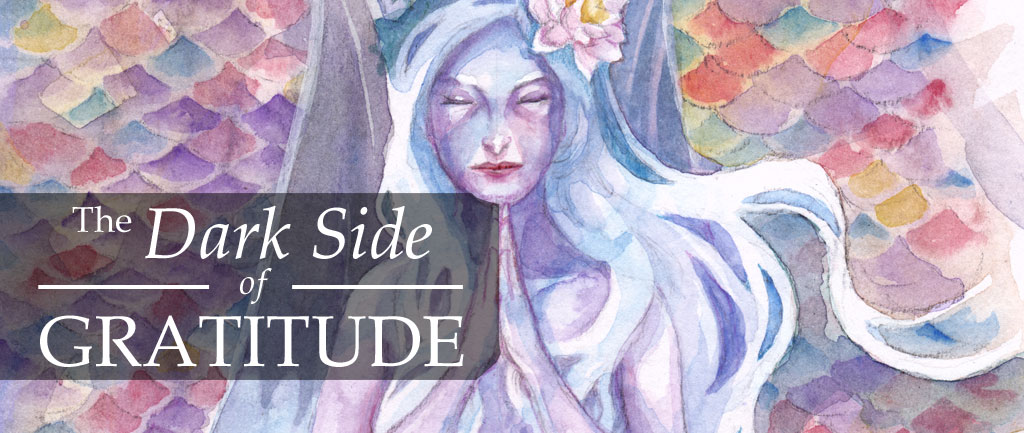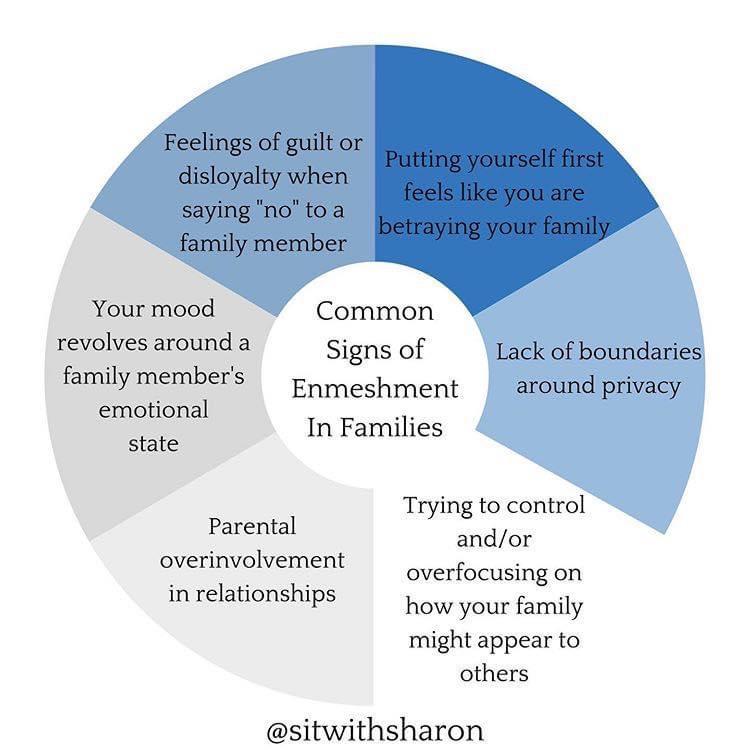
Gratitude is seen as a good emotion and attitude to cultivate and express. “Exercise Gratitude” is Card 33 in the Self-Love Oracle. Yet, as people start learning about the harm from toxic positivity, we need to talk about how gratitude isn’t always the answer to feeling good again.
Forced gratitude is toxic and repressive.
Bad things do happen, and “good vibes only” doesn’t let people understand their own complex emotions and reactions to difficult experiences. Not only should we try to understand our emotions, we need to understand the effect of unprocessed emotions on the body.
Gratitude is a positive emotion and a very useful tool in the Self-Love toolbox, but here, I’m going to be sharing examples of when this tool can be abused.
Gratitude in guilting and manipulation
 “You should be grateful.”
“You should be grateful.”
In enmeshed relationships, individuals are not allowed to feel emotions independent of the other person. Unhealthy relationships can also include someone around whom everyone else walks on eggshells, as this person’s mood (and “good behavior”) very much depends on people around them pleasing and validating them.
Gratitude, admiration, and praise may be the only emotions consistently allowed in relationships involving someone with narcissistic traits, who often dictates reality (and the feelings allowed) for everyone around them.
Gratitude to excuse abuse
“Be grateful for the lessons!” “It turned you into a better person!”
Abuse (physical, verbal, or psychological) frequently puts recipients of abuse into survival mode, a physical state that is hard on the physical body, and wires it for fight, flight, freeze and fawn reactions–some of which can become so ingrained that they look like an inseparable part of an individual’s make-up. While we have bodies built to withstand bouts of stress and adrenaline, we also need rest and regulation, otherwise long-term abuse and chronic high cortisol levels can lead to illnesses and long-term depression and anxiety, among other issues.
“Lessons” can be learned without subjecting people to harm; long-term chronic abuse, health issues, and gaslighting shouldn’t be requisite.
Gratitude to victim-blame and to force “healing”
“Your soul attracted this lesson.”
Gratitude cannot be forced–doing so imposes moral demands and expectations on an individual when they may not have the spoons for anything other than survival and healing; they may not even “owe it” to anyone no matter what outside witnesses think. Appealing to spiritual or moral arguments to blame real human suffering on victims (ie. victim-blaming) is not only frequently misplaced and overreaching, it can wreak more psychological harm on survivors. Victim-blaming is especially heinous and illogical in extreme power imbalances (adults harming children, employers exploiting their position, trauma from systemic racism/inequality, etc), and takes real perpetrators off the hook.
Gratitude to remove accountability
“They were doing something nice for you!” “They meant well.”
Asking for help may feel alien or frightening if we have experienced certain people taking that opportunity to cross boundaries or override our will. Neither of which deserves our gratitude. Intention does not erase impact.
I’m sure car salesmen all want us to have the best car they’ve got, but we don’t have to be grateful when they get pushy and abusive.
Gratitude to excuse low bars of decency
“At least they weren’t worse.” “Be grateful they helped a bit.”
This is most common in forums where people post about their partners “helping” with childcare–and forums mocking the low bar for a certain gender that tends to shun emotional labour and housework.
Gratitude for low bars is, sadly, frequently “enforced” by people who have internalised and normalised bad treatment and low expectations. Advocating gratitude for bare minimum encourages a race to the bottom. Quit that shit.
Gratitude to avoid negative emotions

The pink fluffy unicorns of positivity can only do so much
“Stop choosing negative thoughts.”
Gratitude is not something that can be forced from outside of us, and the above examples are common suggestions given when someone (usually the recommender of gratitude) is uncomfortable around hearing and understanding negative emotions stemming from painful and difficult experiences.
A nervous system under stress can struggle to feel safe and relaxed. Anxiety can be the outward sign of a chronically stressed nervous system; so feeling relaxed and supported (ie. “positive”) takes more than bombarding someone with positive messages.
It takes convincing the stressed body, mind, and spirit that safety is real and fixed–and convincing the body is hardest especially for someone who’s experienced acute or persistent ongoing trauma, like CPTSD. The trauma can be from past experience, difficult relationships, or economic or social hardship, including from being non-neurotypical.
Trauma sufferers and genuinely distressed individuals need understanding, not twee gratitude quotes.
Good Gratitude
All this said, there’s still the gratitude card in the Self-Love Oracle. As a chronic sufferer of self-doubt and self-gaslighting myself, I didn’t want this card to be used to excuse the inexcusable, such as intolerable circumstances or abusive behavior.
Gratitude has its place, usually in those spaces where we are not being harmed, and where we need to remind ourselves of the safety, support, and opportunities we have. Gratitude can work to move us out of anxious thoughts that come from our own head, and out of anxious patterns that can persist even when we’re physically and emotionally safe. Gratitude exercises can help us wire ourselves to look for things which are going right, which can be helpful for hypervigilant, hypersensitive people coming from backgrounds of instability and criticism.
Bottomline: You are not damaged for not feeling gratitude when others expect you to feel it. It’s not a feeling that can be forced. Ingratitude is a common accusation used by manipulators so it benefits us to identify when gratitude isn’t the answer.
All this said, thanks for reading this. You can purchase the Self-Love Oracle here.
Further Reading
- Toxic positivity: Why “good vibes only” is destroying mental health
- Toxic Positivity: Why Positive Vibes are Ruining You
- When Toxic Positivity Seeps Into Schools, Here’s What Educators Can Do
- Gratitude vs. Toxic Positivity: Here’s The Difference, From A Therapist
- Toxic Positivity: ‘This Is Why I’m Ditching Gratitude Guilt’

